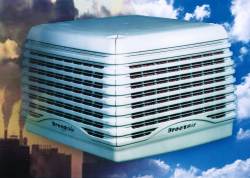Cooling with very low carbon emissions

Breezair’s evaporative-cooling system is associated with very low carbon emissions, and its cooling capacity increases as the outdoor temperature increases.


Ecobat Battery re-launches as Veloris
Following its sale from the Ecobat Group and a subsequent comprehensive review of its position in and value to the market, Europe’s largest independent battery distributor is now Veloris.
Baxi survey reveals care home leaders need support to achieve heat decarbonisation goals
Baxi recently surveyed over 400 senior and middle management care home managers in both the private and public sector this summer in an effort to understand the enablers required to help decarbonise the sector.